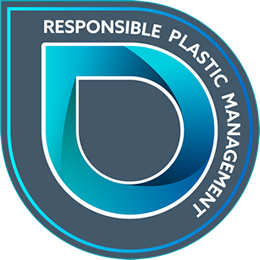FAQs
Plastic pollution refers to the accumulation of plastic objects and particles (e.g., plastic bottles, bags, and microbeads) in the Earth’s environment, adversely affecting wildlife, wildlife habitat, and humans. It involves the widespread distribution of plastic debris in the oceans, rivers, and landscapes, leading to significant environmental, economic, and health impacts. Plastic pollution disrupts ecosystems, harms marine life, and contributes to the degradation of natural habitats.
The scale of plastic pollution is vast and growing. Each year, millions of tons of plastic waste are generated, with a significant portion ending up in oceans, rivers, and landfills. It is estimated that by 2050, there could be more plastic in the oceans than fish by weight. Currently, around 8 million metric tons of plastic enter the ocean annually, and over 5 trillion pieces of plastic debris are already floating in the sea. The global production of plastics exceeds 380 million tons per year, with recycling rates remaining low and plastic waste continuing to accumulate.
While aiming for a plastic-free world is ideal, it is currently impractical given the widespread use of plastics in various industries and everyday life. Responsible Plastic Management (RPM) focuses on minimising plastic waste, enhancing recycling efforts, and promoting the use of sustainable alternatives. RPM emphasises responsible production, consumption, and disposal practices, reducing environmental impact while maintaining the benefits that plastics offer in terms of durability, versatility, and cost-effectiveness. It is a balanced approach that recognizes the challenges of completely eliminating plastic while striving for significant reductions in plastic waste and pollution.
The Responsible Plastic Management Program is unique because it provides a structured framework for businesses to manage their plastic use responsibly. It involves setting measurable goals, implementing best practices, and ensuring transparency in plastic management. The program offers certification, recognizing organisations that demonstrate a commitment to reducing plastic waste and pollution. It also provides resources, support, and guidance to help businesses achieve their sustainability objectives. The emphasis on continuous improvement and industry-specific solutions sets the RPM Program apart from other initiatives.
The Responsible Plastic Management (RPM) program operates as an improvement journey for organizations to meet responsible plastic management goals through a range of services and voluntary certification processes.
Any organization across all sectors can commit to the Responsible Plastic Management through Supporter and Engaged membership. The program provides these members ongoing support, resources, and monitoring to ensure businesses stay on track with their goals.
Businesses can also undergo an assessment to evaluate their current plastic use and management practices. Based on the assessment, they receive a tailored action plan to improve their plastic management, which includes setting targets for reduction, enhancing recycling efforts, and adopting sustainable alternatives. Certification is awarded upon successful implementation and demonstration of responsible plastic management practices.
To achieve certification in the Responsible Plastic Management (RPM) program, businesses must:
- Conduct a thorough assessment of their plastic use and management practices.
- Develop and implement an action plan to reduce plastic waste and enhance recycling efforts.
- Set measurable targets for reducing plastic consumption and improving waste management.
- Demonstrate adherence to best practices in plastic management, including the use of sustainable alternatives where possible.
- Engage in continuous monitoring and reporting of progress towards the established targets.
- Undergo periodic audits to ensure compliance with the RPM standards and continuous improvement.
RPM Accolades or Kite Marks signify that a business has met the high standards set by the Responsible Plastic Management program. These marks indicate that the company is committed to sustainable practices, responsible plastic use, and effective waste management. They enhance the business’s reputation, demonstrating to customers, partners, and stakeholders that the organization prioritises environmental sustainability. These accolades can also provide a competitive advantage, as consumers increasingly prefer businesses that actively reduce their environmental impact.
Engagement in the Responsible Plastic Management (RPM) program means that a business is actively participating in efforts to manage plastic responsibly. This involves committing to the principles of RPM, implementing best practices, and continuously working towards reducing plastic waste. Engaged businesses are proactive in seeking innovative solutions, collaborating with stakeholders, and promoting sustainability within their industry. RPM engagement also includes regular reporting, transparency, and a willingness to adapt and improve plastic management strategies to achieve long-term environmental goals.
Responsible Plastic Management (RPM) fits within Net Zero strategies by reducing greenhouse gas (GHG) emissions associated with plastic production, use, and disposal. By minimising plastic use, enhancing recycling, and adopting sustainable alternatives, businesses can lower their carbon footprint. RPM also supports circular economy practices, where materials are reused and recycled, reducing the need for new plastic production and its associated emissions. This resource-efficient approach aligns with Net Zero goals by contributing to overall reductions in environmental impact and GHG emissions.
Plastic Management integrates with Environmental, Social, and Governance (ESG) strategies by addressing sustainability, social responsibility, and ethical governance. Environmentally, it reduces pollution and promotes recycling and sustainable materials. Socially, responsible plastic use protects communities and ecosystems, enhancing corporate social responsibility. Governance-wise, RPM requires clear policies, measurable targets, and transparent reporting, ensuring accountability and ethical practices. This proactive approach also mitigates risks related to regulatory compliance and reputational damage, supporting broader ESG objectives and fostering stakeholder trust.
A Responsible Plastic Management Associate Partner is an organization or entity that collaborates with the Responsible Plastic Management (RPM) program to support its goals and initiatives. These partners play a crucial role in promoting responsible plastic use, recycling, and sustainable alternatives within their industry or community. By working closely with the RPM program, associate partners help to implement best practices, share knowledge, and drive innovation in plastic management. They are recognized for their commitment to environmental sustainability and their efforts to reduce plastic waste and pollution.
Another Question?
Please contact us if you have a question not listed on this page!
